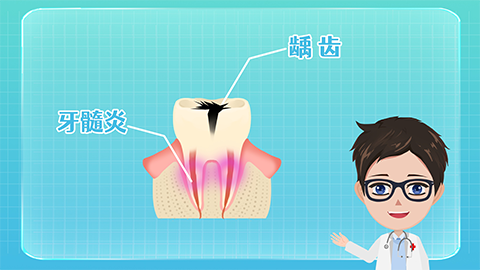Can pulpitis cause facial swelling?
Generally, whether pulpitis leads to facial swelling depends on the stage of the pulpitis and whether it has triggered other complications. If there is significant discomfort, prompt medical attention is recommended. The specific analysis is as follows:

If pulpitis is in its early stage and the inflammation is confined within the pulp chamber without spreading beyond the tooth root or into surrounding tissues, facial swelling typically does not occur. At this stage, the main symptom is sharp pain when the tooth is exposed to hot or cold stimuli. The pain is usually intermittent and localized to the affected tooth, without involving the soft tissues of the face. Timely treatment can control the inflammation and prevent worsening symptoms.
If pulpitis is left untreated and progresses to an advanced stage with apical periodontitis, and if the periapical inflammation further spreads into facial spaces, facial swelling may develop. At this point, the infection breaks through the root apex and invades surrounding soft tissues such as the gums and fat, causing redness, swelling, and pain in the face. Some patients may also experience fever. In severe cases, normal facial appearance and chewing function may be affected, requiring prompt intervention.
Once symptoms of pulpitis appear, timely medical evaluation is essential to determine the stage of inflammation and prevent delayed treatment that could lead to complications such as facial swelling. During treatment, maintaining good oral hygiene is important—rinsing with warm water after meals and avoiding chewing hard, very cold, or very hot foods with the affected tooth to minimize irritation. If facial swelling has already occurred, follow the doctor’s instructions for medication and monitor changes in the swelling; seek immediate follow-up care if the swelling continues to worsen.




